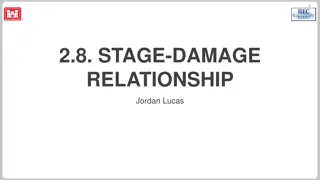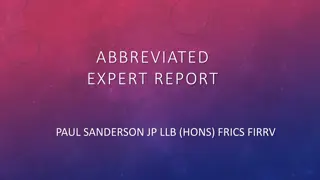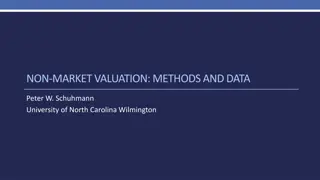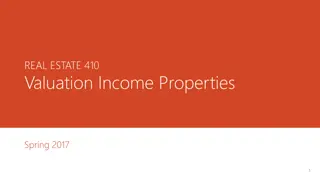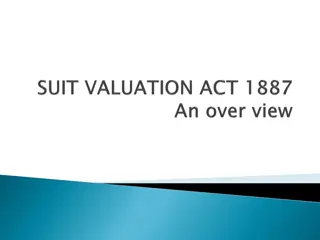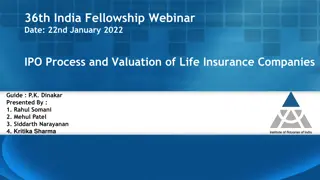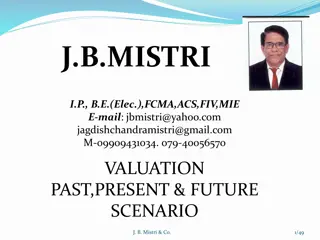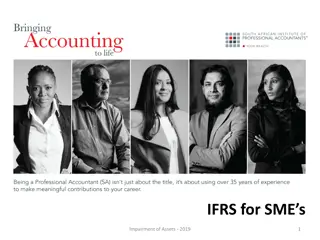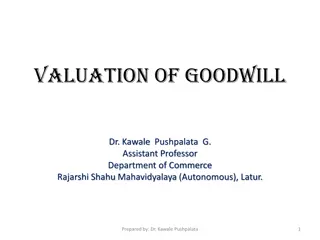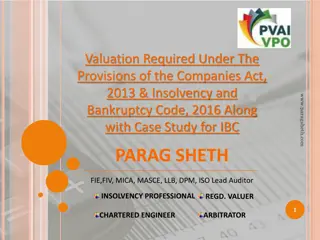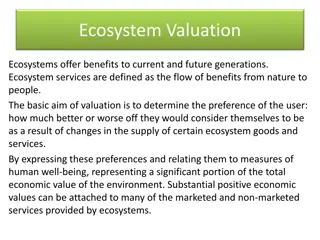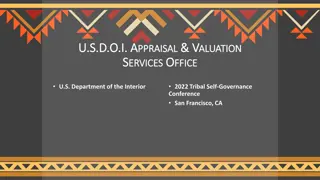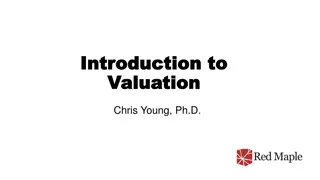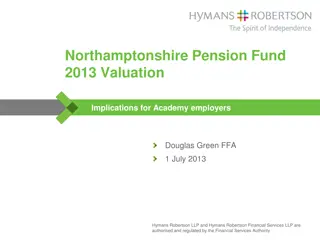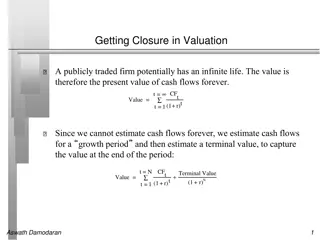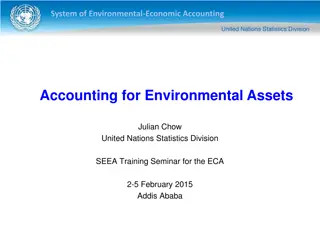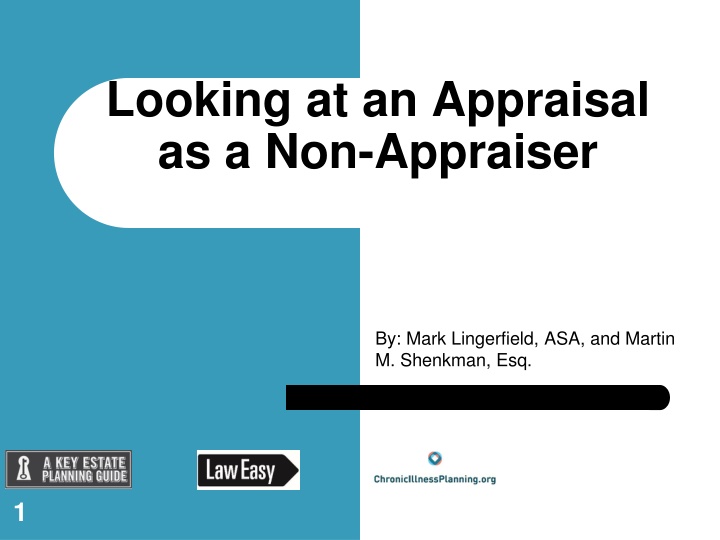
Appraisals for Non-Appraisers
Explore key considerations for non-appraisers when reviewing appraisals, including questions to ask, responsibilities to clarify, and the importance of accurate assumptions. Expert insights shared by Mark Lingerfield, ASA, and Martin M. Shenkman, Esq.
Download Presentation

Please find below an Image/Link to download the presentation.
The content on the website is provided AS IS for your information and personal use only. It may not be sold, licensed, or shared on other websites without obtaining consent from the author. If you encounter any issues during the download, it is possible that the publisher has removed the file from their server.
You are allowed to download the files provided on this website for personal or commercial use, subject to the condition that they are used lawfully. All files are the property of their respective owners.
The content on the website is provided AS IS for your information and personal use only. It may not be sold, licensed, or shared on other websites without obtaining consent from the author.
E N D
Presentation Transcript
Looking at an Appraisal as a Non-Appraiser By: Mark Lingerfield, ASA, and Martin M. Shenkman, Esq. 1
General Disclaimer The information and/or the materials provided as part of this program are intended and provided solely for informational and educational purposes. None of the information and/or materials provided as part of this power point or ancillary materials are intended to be, nor should they be construed to be the basis of any investment, legal, tax or other professional advice. Under no circumstances should the audio, PowerPoint or other materials be considered to be, or used as, independent legal, tax, investment or other professional advice. The discussions are general in nature and not person specific. Laws vary by state and are subject to constant change. Economic developments could dramatically alter the illustrations or recommendations offered in the program or materials. 2
What to Ask and Do Be careful as a non-appraiser how much responsibility you assume for the appraisal by making clear your limited role and abilities. You have paid for the appraisal, and you should have every right to ask as many questions as you and your other advisers feel you need to ask to get comfortable with the appraisal. Make sure that the appraiser is accurately reflecting the key facts of the company or asset being appraised, the transaction involved, etc. Be sure the assumptions the appraiser used in the analysis are reasonable (there are always assumptions). This may be the most important step a non-appraiser can do. 3
What to Ask and Do The appraiser is not in the business every day so that they have to make assumptions. Those should be reflected in the report and the client running the business must review those assumptions and stated facts and confirm that they are accurate and reasonable. A good appraiser should confirm in writing with the client all key assumptions. But if the client/business owner cannot understand the assumptions made from the written report it is unlikely that the IRS or a court would understand them either. Example: Valuing an operating company on minority interest basis with all discounts of $350M. Issued a draft report and the attorney asked if the client told you about the deal. There was a deal ready to close in a month for $600M that the client intentionally did not speak about. 4
Additional information Mark Lingerfield, ASA, mlingerfield@mpival.com Martin Shenkman, Esq. shenkman@shenkmanlaw.com 5

